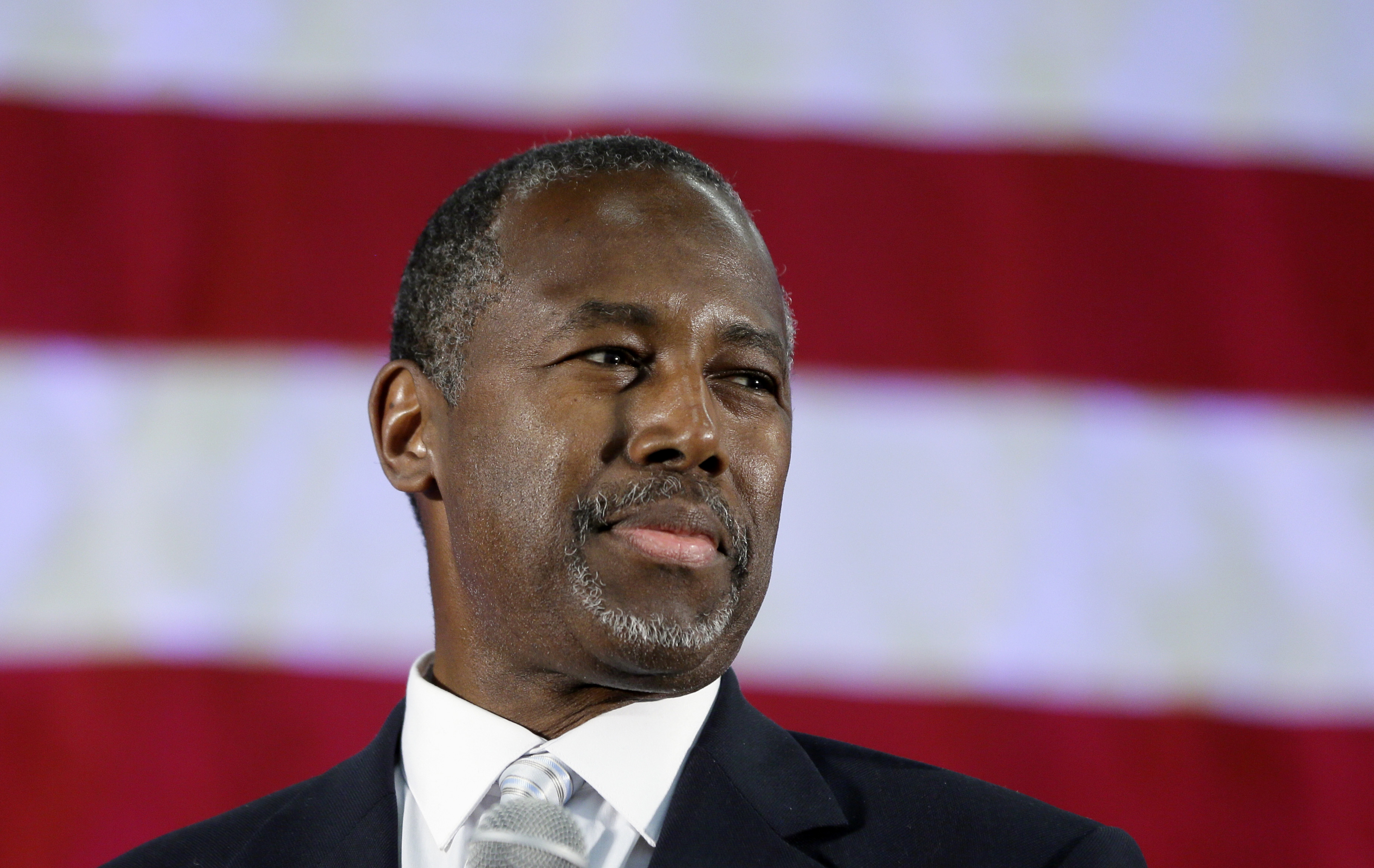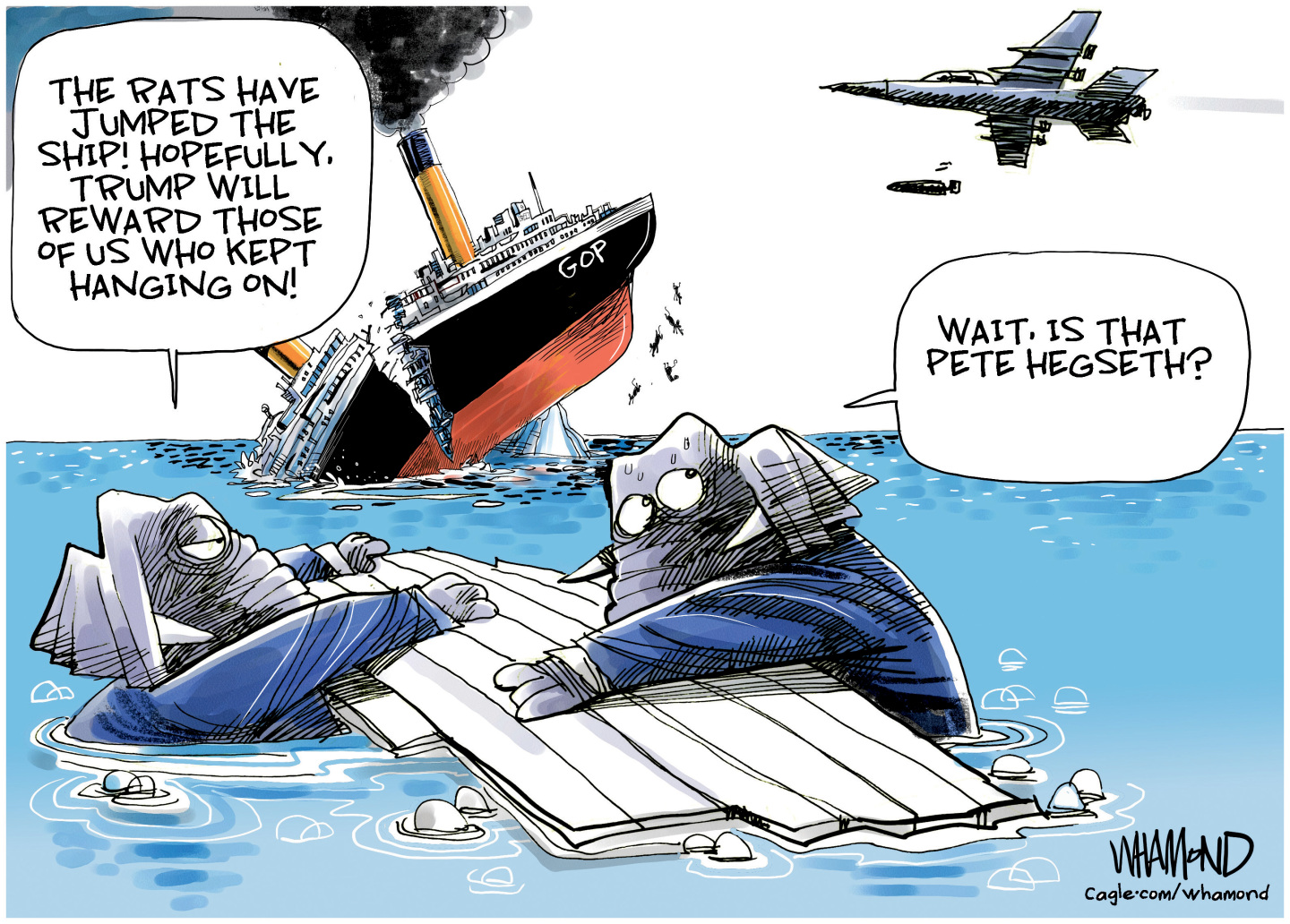Is Ben Carson's campaign one big con?
Follow the money


Ben Carson's presidential campaign is many things. A curiosity, an oddity, a fascinating yet disturbing commentary on today's Republican Party? Absolutely. But there's also some reason to believe that it's a giant confidence game.
That isn't to say that Carson isn't genuinely trying to become president. He has even moved into the lead in a couple of recent national polls. But the inner workings of his campaign will look awfully familiar to those who understand how one right-wing movement has been bilking gullible conservatives over the last half-century.
Like many outsider candidates, Carson is relying on small donors to raise money — lots of it. He took in over $20 million in the third quarter, more than any other Republican (though less than Hillary Clinton and Bernie Sanders). But he has also spent much of it already. As of the end of the third quarter, he had raised $31 million but spent $20 million, almost two-thirds of the haul, an unusually high "burn rate."
The Week
Escape your echo chamber. Get the facts behind the news, plus analysis from multiple perspectives.

Sign up for The Week's Free Newsletters
From our morning news briefing to a weekly Good News Newsletter, get the best of The Week delivered directly to your inbox.
From our morning news briefing to a weekly Good News Newsletter, get the best of The Week delivered directly to your inbox.
Spending lots of money early in an election isn't necessarily bad, if you're investing it in things that will be valuable for you later. If you have a big staff in Iowa, for instance, presumably they'll be organizing activists, persuading voters, and putting in place the infrastructure you'll need to get your supporters to the caucuses.
But that's not where Ben Carson's money is going. Much of it is going to the fundraising itself, mostly through direct mail. And money spent to raise money is just gone. Yes, you can go back to those people who contributed and ask for more, but that might or might not pay off. The Carson campaign is also delivering phone spam to untold numbers of people all over the country. I know lifelong Democrats who have gotten these calls and can't figure out what list would include them as potential Carson supporters, suggesting a telemarketing firm is billing the candidate for oodles of useless calls.
It sure looks like Carson's campaign is a self-perpetuating machine in which money is raised to pay mostly for more money being raised — and the people doing the direct mail and phone calls are making out quite nicely. As conservative radio host Erick Erickson says, "Carson's actual expenditure list reads like a wealthy Republican getting played by consultants."
So why does this sound familiar? As Rick Perlstein has documented, out of Barry Goldwater's 1964 presidential campaign grew an entire industry in which conservatives would receive an endless stream of solicitations for both right-wing causes and various brands of snake oil, offered by people they trusted and with the assurance that they were remaking the country in their own image. Lists were the primary currency, the leads that were bought, sold, and traded between the industry's participants, providing an endless stream of profits in mountains of small checks and bills. "The strategic alliance of snake-oil vendors and conservative true believers," Perlstein wrote, "points up evidence of another successful long march, of tactics designed to corral fleeceable multitudes all in one place — and the formation of a cast of mind that makes it hard for either them or us to discern where the ideological con ended and the money con began."
A free daily email with the biggest news stories of the day – and the best features from TheWeek.com
And that was before the internet and super PACs came along. Now it's even easier, with conservative publications and organizations using the new versions of those lists to solicit more and more cash. Go to Newsmax or WorldNetDaily or Human Events and sign up for updates, and just watch the solicitations roll in. "Give to our super PAC and take down Obama!" they'll say, and people do — though the money only goes to pay the fundraisers, who in a weird coincidence share an address with the super PAC. Meanwhile, Mike Huckabee hawks miracle Biblical cancer cures to the gullible fans on his email list, profiting off their misery with talk as smooth as any confidence trickster.
No candidate was better positioned to take advantage of these same marks, who had been conned so many times before, than Ben Carson. While most Americans only heard of Carson when he started running for president, he's been a prominent figure in certain socially conservative circles for years. With his mix of fervent religious belief and faith in unseen conspiracy theories, Carson's story and personality has been admired by those same people who get so many other solicitations from those in the movement — or who seem like they're part of the movement, but who are really only there to make money.
It may be that Ben Carson is really running a professional, forward-thinking campaign where nobody's getting rich and all the money being spent is only on wise investment that will pay off when the actual voting starts. But it sure doesn't look that way so far.
Paul Waldman is a senior writer with The American Prospect magazine and a blogger for The Washington Post. His writing has appeared in dozens of newspapers, magazines, and web sites, and he is the author or co-author of four books on media and politics.
-
 Political cartoons for December 20
Political cartoons for December 20Cartoons Saturday’s political cartoons include drowning rats, the ACA, and more
-
 5 fairly vain cartoons about Vanity Fair’s interviews with Susie Wiles
5 fairly vain cartoons about Vanity Fair’s interviews with Susie WilesCartoon Artists take on demolition derby, alcoholic personality, and more
-
 Joanna Trollope: novelist who had a No. 1 bestseller with The Rector’s Wife
Joanna Trollope: novelist who had a No. 1 bestseller with The Rector’s WifeIn the Spotlight Trollope found fame with intelligent novels about the dramas and dilemmas of modern women
-
 Has Zohran Mamdani shown the Democrats how to win again?
Has Zohran Mamdani shown the Democrats how to win again?Today’s Big Question New York City mayoral election touted as victory for left-wing populists but moderate centrist wins elsewhere present more complex path for Democratic Party
-
 Millions turn out for anti-Trump ‘No Kings’ rallies
Millions turn out for anti-Trump ‘No Kings’ ralliesSpeed Read An estimated 7 million people participated, 2 million more than at the first ‘No Kings’ protest in June
-
 Ghislaine Maxwell: angling for a Trump pardon
Ghislaine Maxwell: angling for a Trump pardonTalking Point Convicted sex trafficker's testimony could shed new light on president's links to Jeffrey Epstein
-
 The last words and final moments of 40 presidents
The last words and final moments of 40 presidentsThe Explainer Some are eloquent quotes worthy of the holders of the highest office in the nation, and others... aren't
-
 The JFK files: the truth at last?
The JFK files: the truth at last?In The Spotlight More than 64,000 previously classified documents relating the 1963 assassination of John F. Kennedy have been released by the Trump administration
-
 'Seriously, not literally': how should the world take Donald Trump?
'Seriously, not literally': how should the world take Donald Trump?Today's big question White House rhetoric and reality look likely to become increasingly blurred
-
 Will Trump's 'madman' strategy pay off?
Will Trump's 'madman' strategy pay off?Today's Big Question Incoming US president likes to seem unpredictable but, this time round, world leaders could be wise to his playbook
-
 Democrats vs. Republicans: who are US billionaires backing?
Democrats vs. Republicans: who are US billionaires backing?The Explainer Younger tech titans join 'boys' club throwing money and support' behind President Trump, while older plutocrats quietly rebuke new administration
